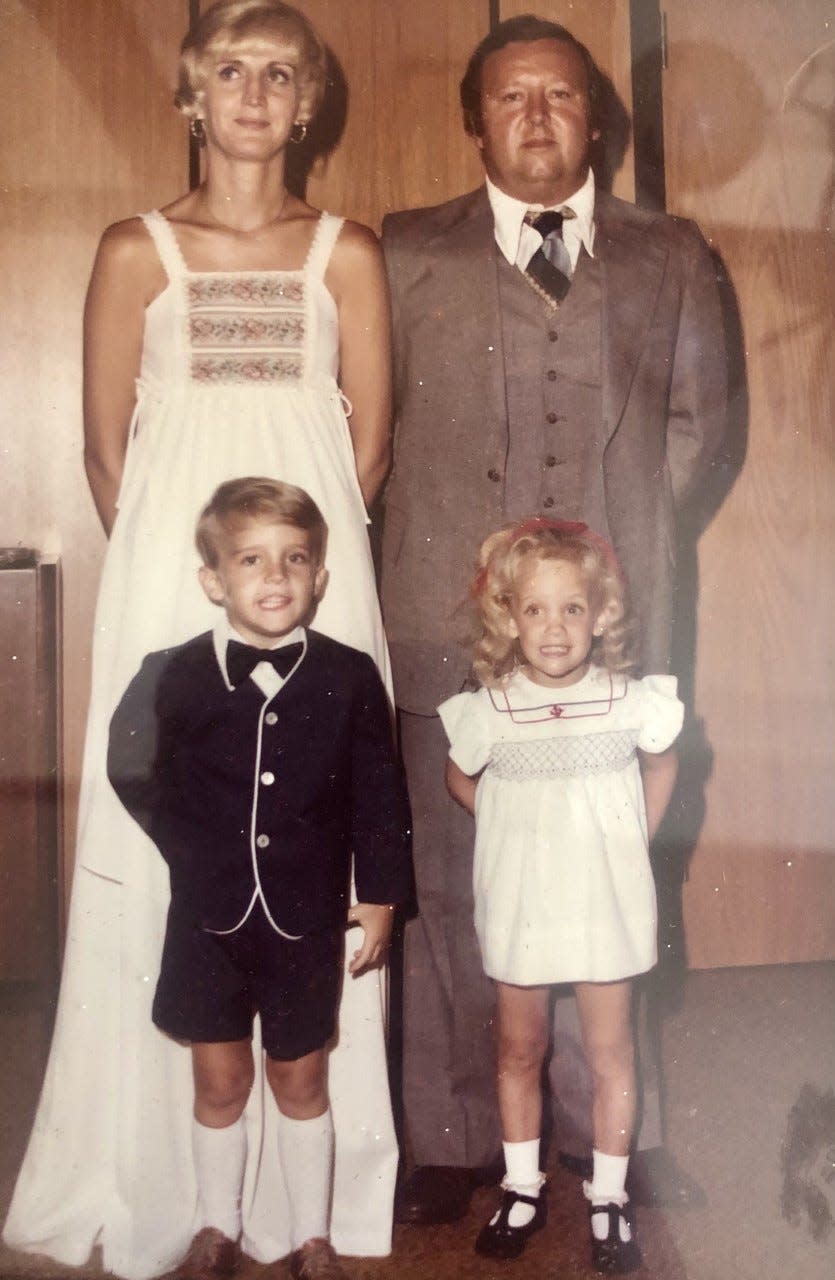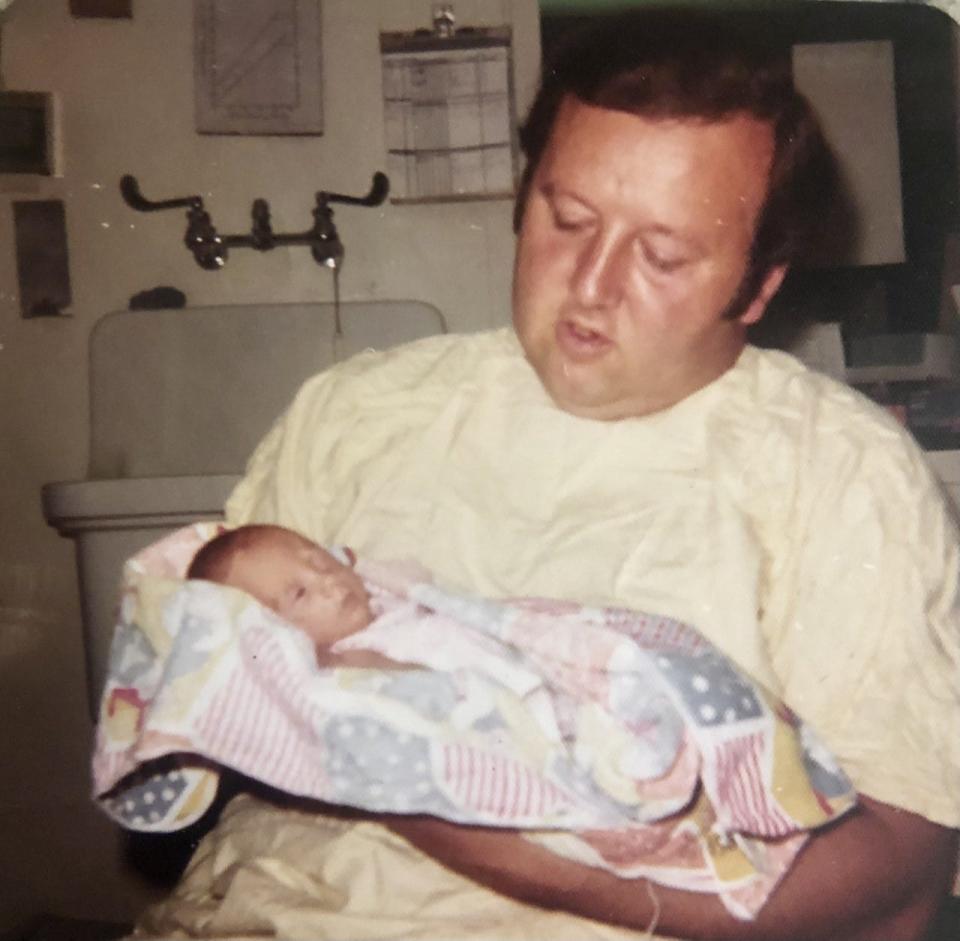'I was shocked': Weymouth murder victim's family reacts to court ruling that could free killer
WEYMOUTH – Joseph Mullin’s family got a small sense of closure in 1998, when a judge sentenced the man convicted of raping and killing his 17-year-old sister to life in prison without the possibility of parole.
But that could change after a Massachusetts Superior Court judge's recent ruling that says it's unconstitutional to automatically sentence people younger than 21 to life in prison without the possibility of parole.
“I was shocked, but I wasn’t surprised to hear about this ruling,” said Joseph Mullin, brother of 1993 murder victim Jennifer Mullin. “I don’t think it’s right in any way, and I don’t think it should be up to a parole board.”

What happened to Jennifer Mullin?
Jennifer Mullin was 17 years old when her body was found frozen and half-buried on a wooded lot in Rockland on Jan. 30, 1993. Her clothes were disheveled and torn, and the Weymouth teen had been strangled with her own belt after an acquaintance gave her a ride after a party. She never made it home.
Investigators focused on that acquaintance, William Jewett Jr., of Weymouth, but needed the evidence to make an arrest. After a long investigation and two-year grand jury proceeding, Jewett was arrested in October 1997.
Prosecutors: South Shore men laundered money through Chinatown restaurant
'Operation Snowfall': Quincy man gets 6 years in prison for distributing kilo of cocaine
A jury found Jewett guilty of first degree murder and rape in a 1998 trial. He was sentenced to life in prison without the chance for parole. He was younger than 21 at the time of the crime.
In 2003, Jewett sought a new trial, but the state Supreme Judicial Court denied his request and upheld his convictions. Jewett took his appeal to the U.S. District Court for the District of Massachusetts, but was unsuccessful.
A brother speaks out
Joseph Mullin was an 18-year-old college freshman when his sister was murdered. Now, he works as a deputy public defender at the El Paso County Public Defender's Office in Texas.

“I get that people have rights and they do need to be protected, but you can't go around murdering people in cold blood and get away with it ” said Mullin. “I've thought about my sister every single day for my entire life.”
Mullin said his mother died more than a year ago, but she and his father, a retired Weymouth firefighter, never got over the loss of his sister.
"My dad has the biggest heart, and he lost his daughter," Mullin said.

How did this happen?
A decade ago, the state prohibited judges from sentencing defendants under 18 to life without parole. But state law still required life sentences without parole for those who were between 18 and 20 when they committed first-degree murder.
The state Supreme Judicial Court recently asked Judge Robert Ullmann to review the latest neuroscience on brain development in those younger than 21, and to look at two cases involving teenagers sentenced to life in prison without parole.
Ullmann said mandatory life prison terms for adults younger than 21 constitute “cruel or unusual punishment.”
'A game-changer for Weymouth students': New Chapman Middle School set to open in September
Based on four experts, Ullmann said the brains of 18- to 20-year-olds are not fully developed, so they tend to be more prone to risk taking, more susceptible to peer influence and are less able to control their impulses.
He said those convicted of first-degree murder while between the ages of 18 and 20 should receive life sentences and serve at least 15 years in prison before potentially becoming eligible for parole.
"The Court's holding does not in any way excuse acts of violence by 18- through 20-year-olds," he wrote in his decision. "...Others, depending on the facts, may be sentenced to life without the possibility of parole, but only if that sentence is warranted."
'It spread extremely quickly': Hingham officials say wind contributed to devastating fire
If the Massachusetts high court affirms Ullmann's ruling, Jewett and about 200 other inmates could potentially have the right to be re-sentenced or become eligible for parole.
Plymouth County District Attorney Timothy Cruz said in a statement that Jewett has not filed a motion asking the Superior Court to revisit his sentencing, and Ullmann's ruling is not binding on the rest of the state.
"If and when we receive a motion in this case, we will consult with the family of the victim and proceed with our duties in a responsible, thoughtful and measured way," he said in the statement. "We will seek to do justice, taking into account the viciousness of this crime, a horrific rape and murder of a teenager, the loss to her family and the community of that young life, and will do so in a court of law.”
Thanks to our subscribers, who help make this coverage possible. If you are not a subscriber, please consider supporting quality local journalism with a Patriot Ledger subscription. Here is our latest offer.
This article originally appeared on The Patriot Ledger: Court ruling could free killer of Weymouth 17-year-old Jennifer Mullin

